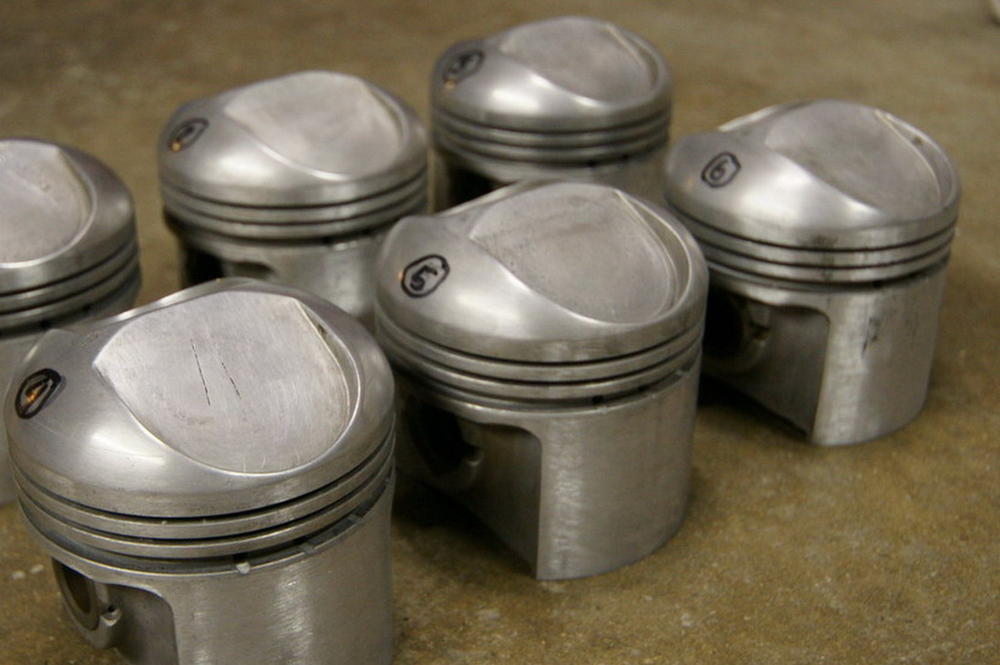|
|

|
Porsche, and the Porsche crest are registered trademarks of Dr. Ing. h.c. F. Porsche AG.
This site is not affiliated with Porsche in any way. Its only purpose is to provide an online forum for car enthusiasts. All other trademarks are property of their respective owners. |
|
|
  |
| Mark Henry |
 Jul 11 2017, 09:53 AM Jul 11 2017, 09:53 AM
Post
#21
|
|
that's what I do!                Group: Members Posts: 20,065 Joined: 27-December 02 From: Port Hope, Ontario Member No.: 26 Region Association: Canada |
https://www.youtube.com/watch?v=jdW1t8r8qYc Slow motion of the burn in a cylinder, ok its only a B&S single cyl but still interesting. Yes that's a very cool vid. You can see how the flame travels like a wave front. You also can see that it's wasted spark, firing each stroke. Absolutely zero effect on efficiency. It would be real cool to see a FI batch vs sequential vid. |
| jvmarino |
 Jul 11 2017, 10:17 AM Jul 11 2017, 10:17 AM
Post
#22
|
|
Member   Group: Members Posts: 98 Joined: 22-March 09 From: Baltimore Member No.: 10,188 Region Association: None |
I am curious of people's thoughts on another bit of conflicting info I have seen. I see the NGK BP6ES mentioned a lot, but the NGK application guide calls for BR6ES for the 4 cylinder 914 engine. I know the "R" just indicates the ignition noise suppression, so my main question is the "P", projected tip, correct, even thought NGK says to use the non projected plug? The projected tip plugs have a wider effective heat range... They act like hot plugs at low loads, and cold plugs when under high loads. Sounds like BS but its basic engineering applied well. I don't think I have run non projected tip plugs in 25 years. Thanks for the reply on projected tip. I had already gone with the non-projected tip plug and will keep this thread in mind for the next time I need to purchase plugs. The car runs pretty nicely so I don't see a need to replace them now. Jim |
| porsha916 |
 May 17 2022, 09:52 AM May 17 2022, 09:52 AM
Post
#23
|
|
Member   Group: Members Posts: 214 Joined: 1-June 04 From: Greenwood, SC Member No.: 2,137 Region Association: None |
I have tried different types of spark plugs to squeak out more power, multi electrode, copper, platinum! (indexing seems to have small effect) (a multi spark ignition seems to have some effect) I use platium single electrode in every engine I can get them for! Airplanes have two magneto's for safety but when you test them before flight and you turn off or ground out one system the rpm drops and has to be in an except amount for flight. Also the mags are usually timed a degree of timing apart. I have not tested the E3 spark plug. I would like to hear what Jake has to say about spark plugs!
My two Cents! (IMG:style_emoticons/default/beerchug.gif) |
| brant |
 May 17 2022, 10:09 AM May 17 2022, 10:09 AM
Post
#24
|
|
914 Wizard           Group: Members Posts: 12,011 Joined: 30-December 02 From: Colorado Member No.: 47 Region Association: Rocky Mountains 

|
I hope this isn't hijacking, but it reminds me of a question about twin plug engines. How does that really help? If multiple electrodes are a waste (which I agree with), why are multiple plugs effective? The whole charge does not just suddenly burn. It takes time for it to all burn. If you start the burn from two separate locations, the burn happens faster and in theory more evenly. The rule of thumb in 911 engines is that you can run a full point of compression higher in twin-plug engines than single-plug ones. Modern cylinder head design makes twin-plugging less beneficial, as more care is taken to get the chamber shape to work optimally with the spark plug placement. In some applications (e.g., aero engines) the two plugs are there for redundancy. Because if one spark fails while you're in the air, you really really really want to have another one there to light the charge. --DD (IMG:style_emoticons/default/agree.gif) The burn is like a wave, if it starts on one side it takes time to get to the other side. If it starts at two points the wave from each point only has to travel half as far. The more efficient the burn the higher CR you can run. Modern heads the plug is in the center surrounded by 4 valves, like Dave said better chamber and piston top design, plus water cooled can run higher CR and leaner AFR due to more efficient cooling. additionally... when the factory started twin plugging their race motors.. they were pretty small bore the 2.o pistons and combustion chambers on a 6 cylinder were a different design and shape than the later motors so the tall piston shape was another barrier for the burn to cross... making the twin plug a great solution to start the fire on both sides of the pistons "ridge" or tall center I believe starting with the 2.2, the combustion chamber was re-shaped and the piston as well, to help address this issue and assist the burn front in completing its job... |
| brant |
 May 17 2022, 10:14 AM May 17 2022, 10:14 AM
Post
#25
|
|
914 Wizard           Group: Members Posts: 12,011 Joined: 30-December 02 From: Colorado Member No.: 47 Region Association: Rocky Mountains 

|
picture of a 906 2 liter high compression piston... and the ridge....
Attached image(s) 
|
  |
1 User(s) are reading this topic (1 Guests and 0 Anonymous Users)
0 Members:

|
Lo-Fi Version | Time is now: 11th July 2025 - 09:11 PM |
Invision Power Board
v9.1.4 © 2025 IPS, Inc.









